Biopolymers Petrochemicals Hydrogen 30-06-2021 - Arhive
Biopolymers Petrochemicals Hydrogen
Crude Oil Prices Trend
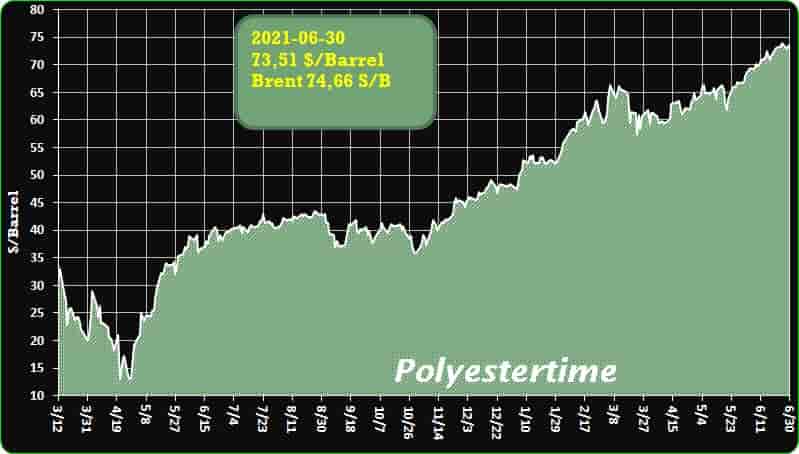
-Audi Gives Automotive Plastics New Lease on Life
A pilot project in partnership with the Karlsruhe Institute of Technology shows that chemical recycling of mixed plastic waste is both technically feasible and environmentally and financially promising.
As part of Thinktank Industrial Resource Strategies, researchers at the Karlsruhe Institute of Technology (KIT) have been working with Audi for six months on a pilot project devoted to chemical recycling of plastics from automotive manufacturing. Now that the project has been completed, it is clear that chemical recycling of mixed plastic waste is both technically feasible and environmentally and financially promising, they said.
The plastic waste from automotive manufacturing can be processed into pyrolysis oil and could replace petroleum as a raw material for the production of high-quality plastic components in Audi models. The material cycles closed in this way save valuable resources and energy, and reduce greenhouse gas emissions. As such, chemical recycling represents a viable alternative to energy recovery and complements mechanical processing. Audi could use fossil resources for longer and scale back the procurement of additional fossil resources. Together with partners from the chemical industry and KIT, Audi now plans to take the next step and research industrialization.
From fuel tanks and airbag covers to radiator grilles, numerous components in cars are made of plastics. They need to meet stringent safety, heat resistance, and quality requirements. This is why plastic automotive components that are subject to particularly high levels of stress, to date, can only be manufactured from virgin-quality materials. Additionally, mixed plastic waste is often not available for mechanical recycling. For this reason, the KIT thinktank launched a pilot project for chemical recycling with Audi at the end of 2020. Within the scope of the project, tests were carried out to determine the extent to which mixed automotive plastic fractions can be fed back into a resource-friendly cycle via chemical recycling.
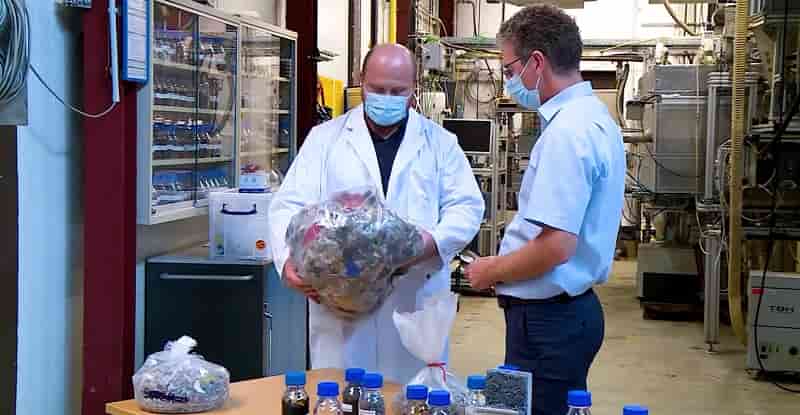
-Avgol Invests In New Capabilities At Russian Facility
Avgol, a manufacturer of high performance non-woven fabric solutions, has announced it is investing in a new high-speed, high-capacity flexible multiple beam production line at its facility in Uzlovaya, Russia.
“The addition of this new line enables us to have greater production capacity for growing regional markets and support the release of new Avgol technologies,” said Tommi Bjornman, CEO of Avgol. Biopolymers Petrochemicals Hydrogen
“Serving the growing baby diaper, adult incontinence and feminine hygiene markets along with satisfying sustained demand for meltblown filtration and medical materials, this investment enables Avgol to deliver an improved degree of service across the entire area while consolidating and strengthening our existing position,” he said.
Avgol, an Indorama Ventures Limited company, leads the global hygiene market with the most comprehensive range of ultra-lightweight spun-melt nonwoven fabrics. This new line at the company’s Uzlovaya facility, in the Tula Oblast region of Russia, will see Avgol investing in new Reicofil 5 (RF5) technology. The third line for this location will include biocomponent and corresponding high-loft capabilities thus producing materials for applications that meet the needs of upper tier products for Hygiene customers.
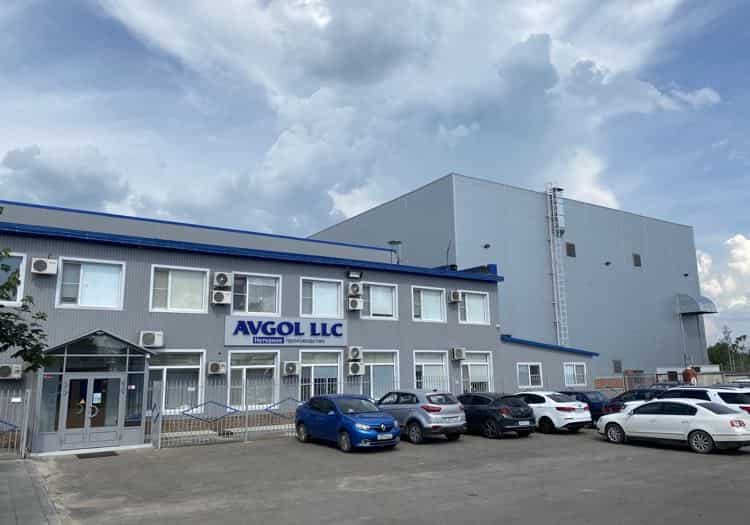
-International Recycling Week: Informal census finds consensus
Collectors and reprocessors of plastic scrap and end users of the material all see intense activity in the sector. Biopolymers Petrochemicals Hydrogen
A panel gathered for the online International Recycling Week event represented several links in the plastic recycling supply chain, and each one of them is involved in and/or witnessing big-ticket investments in new plastic recycling activity.
Mass media headlines surrounding plastic packaging have been consistently negative for several years, as improperly discarded plastic has accumulated in the ocean and other ecosystems. The activism has spurred (belatedly, activists would likely contend) new regulations and substantial investments by brand owners, plastics producers, waste and recycling companies and entrepreneurs all seeking to raise the global packaging recycling rate.
Syed Shahzad Alam, a procurement manager in the Middle East region for Unilever, pointed to that company’s aggressive plastic recycling targets when commenting, “We are not the only one doing this, but we are certainly the pioneer and we are helping to create an industrywide drive, [and] this is actually happening.”
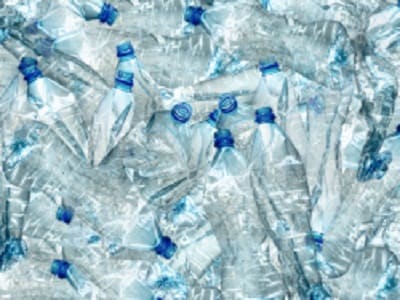
-China’s Yisheng permanently shuts oldest PTA unit
Chinese producer Yisheng Petrochemical announced today that it has permanently shut its oldest purified terephthalic acid (PTA) line, the 650,000 t/yr No.1 unit, at its Ningbo site in east China’s Zhejiang province.
The main reason for the closure is weak production margins. A massive expansion of PTA capacity in China over the past two years has squeezed margins, and Yisheng — China’s largest PTA producer — does not expect significant improvements in the coming years. The typical breakeven cost for a PTA unit of this scale is around or above 700 yuan/t ($108/t), much higher than Yn400-500/t for larger and newer plants. Biopolymers Petrochemicals Hydrogen
A new round of shutdowns of older producers began in China in March. State-controlled Sinopec Yangzi Petrochemical dismantled its 300,000 t/yr No.1 PTA unit in Nanjing in April, while producers Zhejiang Reignwood and Ningbo Liwan have kept their production lines idle since March.
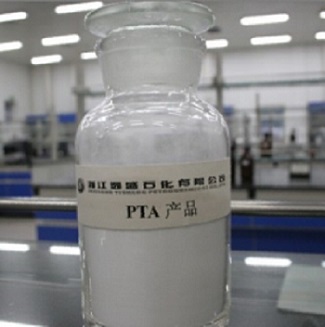
–Chemical recycling – snapshot of a technology everybody talks about
Chemical recycling has gained increased attention as a promising recovery technology, especially for post-consumer plastic waste. It is seen as a complementary solution to mechanical recycling, being better suited for difficult to recycle plastics like multi-layer solutions or heavily contaminated plastics. Yet, its availability at commercial scale is currently still limited, and a legislative framework at European level still needs to be established. Biopolymers Petrochemicals Hydrogen
The term chemical recycling, also known as feedstock or tertiary recycling, comprises different varying technologies that convert plastic waste into an upstream feedstock resulting in secondary raw materials that have the same quality as virgin materials. This recovery technologies provide an opportunity for plastic waste streams that generally are not mechanically (or otherwise) recycled. In this way, waste is directed away from landfill or energy recovery towards higher quality recycling. However, chemical recycling is still facing economic and technical challenges, which have an effect on their potential for commercial development in Europe.
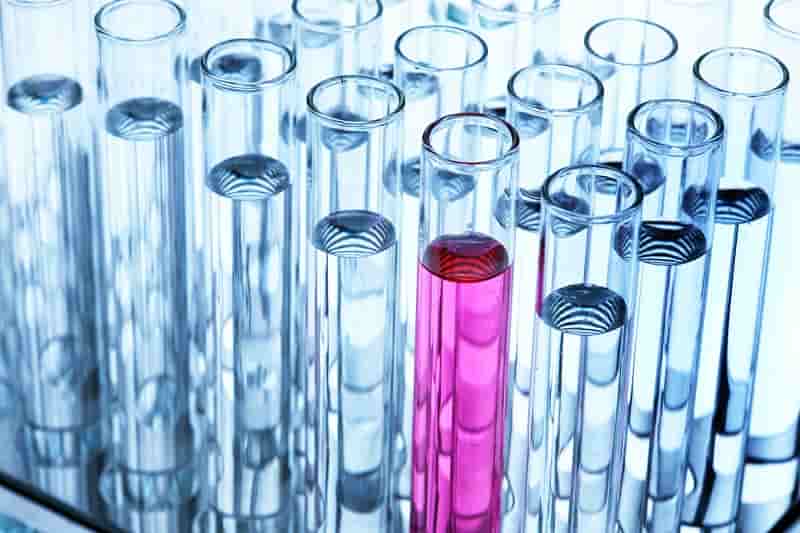
-How biopolymers can be processed in hot runners
Germany — Never before has the plastics industry been as driven by sustainability as it is today. The increasing pressure from society and legislation demanding more sustainable alternatives is also driving Guenther hot runner technology. Therefore, the 1st Virtual Technology Day on 16 June 2021 was dedicated to the processing of biopolymers in the hot runner. Biopolymers Petrochemicals Hydrogen
Biopolymers are an attractive alternative to polymers and are increasingly becoming the focus of the plastics processing industry. However, their crystallisation behaviour makes processing these new materials difficult. This prompted Guenther Hotrunner to put together a programme of lectures on this topic for a virtual technology day. More than 160 registrations from a wide range of companies proved the interest in the possibilities in biopolymer processing.
Manuel Schmellenkamp from Sigmasoft opened the lecture programme of the online event with the topic “Processing biopolymers — How does simulation work?” Using the example of polylactide (PLA), which can be injection moulded as a blend and filled with natural fibres (for example, wood imitation), he demonstrated the benefits of simulation in all areas of the plastics processing value chain. PLA basically behaves like a thermoplastic during injection moulding, but the residual moisture has a greater effect on the mechanical and rheological behaviour.
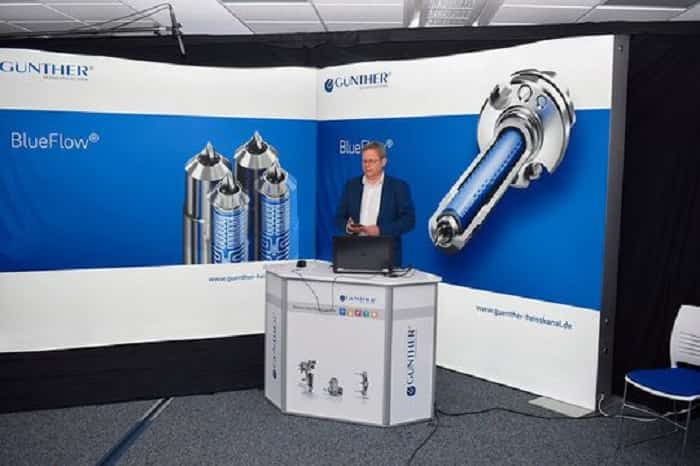
-New vegan spider silk could be the solution to plastic pollution
A new plant-based material has been created – and it could put an end to single-use plastic.
A team at the University of Cambridge has created a polymer film by imitating the properties of spider silk, one of the strongest materials in nature. The product is as strong as many common plastics in use today and could replace the material completely in many common household products. Biopolymers Petrochemicals Hydrogen
The ‘vegan spider silk’ was created using a method which assembles plant proteins into materials that mimic silk on a molecular level, resulting in a plastic-like free-standing film, which can be made at industrial scale.
From Alzheimer’s disease to dishwasher tablets
Professor Tuomas Knowles has spent years at Cambridge’s Yusuf Hamied Department of Chemistry, researching the behaviour of proteins. Much of this has been focused on what happens when proteins ‘misbehave’, primarily in relation to Alzheimer’s disease.
“We normally investigate how functional protein interactions allow us to stay healthy and how irregular interactions are implicated in Alzheimer’s,” says Knowles, who led the research. “It was a surprise to find our research could also address a big problem in sustainability: that of plastic pollution.”

-DEFRA plans for more UK plastic processing infrastructure
DEFRA is working with the Department for International Trade (DIT) on plans to build more plastic processing infrastructure in the UK to reduce exports, according to the government.
Last week Feryal Clark, Labour MP for Enfield put a question to the Secretary of State for DEFRA asking if he will hold discussions with the DIT on the findings of a Greenpeace report that plastic packaging and bags from seven of the top 10 UK supermarkets have been found at multiple sites across Turkey.
Minister for the environment Rebecca Pow has responded to the question, confirming that DEFRA is working with DIT on “supporting the development of more plastic processing infrastructure within the UK to reduce the need to export these materials to other countries, such as Turkey”. Biopolymers Petrochemicals Hydrogen
She continued saying the government is also committed to bringing forward a ban on plastic exports to non-OECD countries.
Regarding the Greenpeace report, Pow added: “The Environment Agency (EA) has liaised with Greenpeace […] in order to seek information which could assist them with their compliance monitoring and enforcement of waste exports to Turkey.
She also said that the EA has been proactively engaging with the authorities in Turkey on the issue of illegal plastic waste exports over the past year.
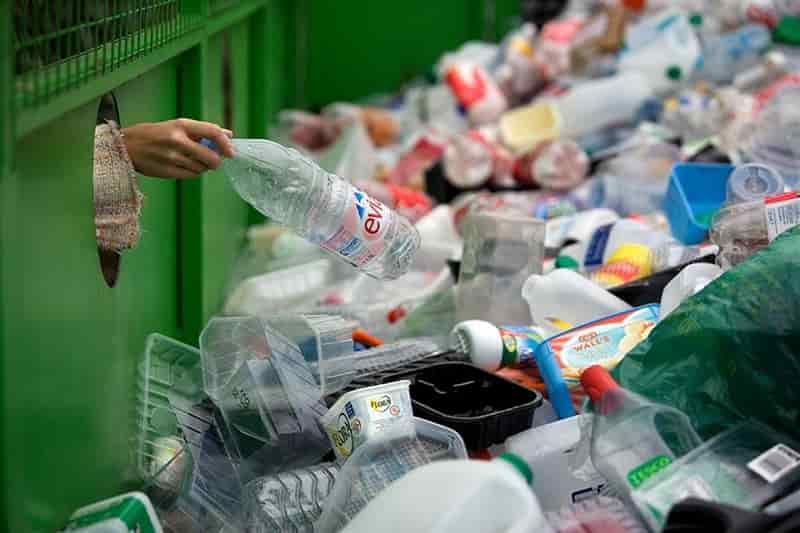
-Report Blasts ‘False’ Corporate Solutions to Plastic Pollution
A new report from Break Free From Plastic claims that fast-moving consumer goods companies such as Procter & Gamble, Nestlé, and Coca-Cola are investing in costly projects that do little to solve the plastic waste problem.
While top fast-moving consumer goods (FMCG) companies are seeking ways to reduce plastic waste through a variety of programs that range from the probable to the impossible, Break Free From Plastic has issued a new report that categorizes 265 recent and current projects. Out of these projects, a total of 226 were designated “false solutions to the plastic pollution crisis,” as defined by experts from the Break Free From Plastic movement. Biopolymers Petrochemicals Hydrogen
“Missing the Mark: Unveiling corporate false solutions to the plastic pollution crisis” analyzed the initiatives of Procter & Gamble, PepsiCo, Mars Inc., Mondelez International, Nestlé, Unilever, and the Coca-Cola Co., which are considered to be “top polluters” according to a global brand audit conducted by Break Free From Plastic. While these FMCG companies claim to be tackling the issues surrounding the use of plastic packaging for their products, the report says that they “are pursuing false solutions that range from potentially damaging at worst, and simple wishful thinking, at best.” The findings reveal that “only 15% of the projects are proven solutions like reuse, refill, and alternative delivery systems. Instead, these companies are investing in projects that do little to eliminate single-use plastics,” said Emma Priestland, Break Free From Plastic Corporate Campaigns Coordinator.
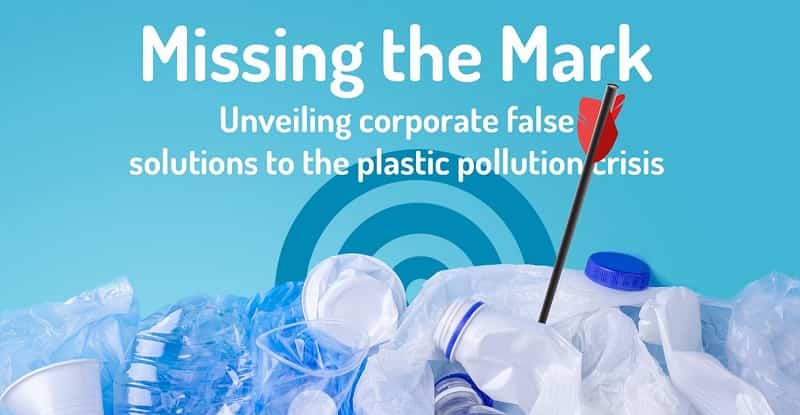
-WOX Brings AI to Ozone Bleaching and Denim Finishing
Wiser Tech is an innovation and technology company that has set out to change the current textile industry. Based in Turkey, the world-class R&D center has been working on advanced technologies that will revolutionize denim finishing processes. “WOX, the first product of these technologies, physically consists of an ozone drum and generator, but in spirit, it was designed as a network object that provides data to artificial intelligence algorithms,” said Fuat Gozacan, founder of Wiser Tech. “With this feature, it is a first in the industry.”
Here, Gozacan spoke with Sourcing Journal about its AI-based WOX system and what makes it unique in the denim finishing technologies industry.
You introduced a new ozone finishing technology last month. How did WOX’s journey begin? Biopolymers Petrochemicals Hydrogen
The starting point of WOX is based on Wiser Wash, a patented and award-winning ozone bleaching process introduced to the denim industry in 2017. It eliminates the standard pumice stone and toxic chemicals, and bleaches with only 200 ml of water and ozone. Yet the outcome is always gorgeous, with brighter contrasts. Wiser Tech, our innovation and technology company, has been working on advanced technologies that will take the potential of Wiser Wash one step further.
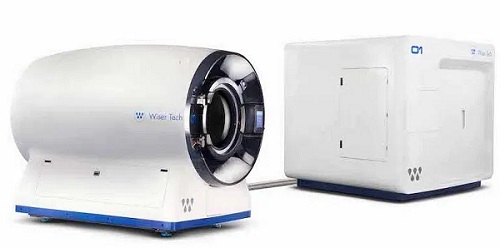
Biopolymers Petrochemicals Hydrogen
